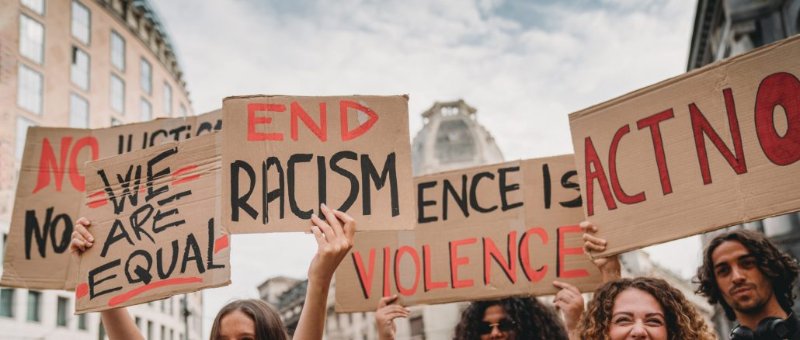Lisa Owen interviews Wealth and New Zealand author
Lisa Owen interviews Wealth and New Zealand author Max Rashbrooke
Rashbrooke says wealthiest 1%,
about 34,000 adults in NZ, have average wealth of $4.5
million each
Wealthiest 10% of New Zealanders own
half of all the assets, while half of the country has just
4% of the wealth.
Says NZ is unusual in not taxing
wealth. “We don’t tax capital gains except now in very
limited circumstances. We don’t tax inheritances. We
don’t tax gifts. We don’t tax wealth in
general…”
Says the fact that the
wealthiest 1% have nearly 20% of the country’s wealth is
“a really striking inequality”
“Our levels of wealth and inequality
are pretty well comparable with other places like Germany or
Canada or wherever. But the point is – we do or we like to
think of ourselves as egalitarian, and increasingly the
evidence shows that that’s just not
true.”
Lisa Owen: His new book is called
Wealth and New Zealand. And Max Rashbrooke joins me in the
studio now. Good morning.
Max Rashbrooke:
Good morning.
Tell me about the wealthy people
in New Zealand. Who are they, and how rich are
they?
Well, if you’re looking just at the
wealthiest 1%, so that’s about 34,000 adults in New
Zealand, they’ve got an average wealth of $4.5 million
each. And that’s the kind of wealth that allows you
influence. You know, you can donate to political parties;
you’re likely to have substantial business investments,
you know, to kind of exert the sort of influence that then
ripples out through the rest of society. So that’s your
1%.
If you had to give me a profile of them,
who are they? Are they men? Are they white
males?
We don’t know a lot about that in
detail, but, yeah, Pakeha are disproportionately wealthy
compared to other ethnicities. Men are as well. They’re
probably spread around the country quite a bit. I mean,
there’s significant wealth in Auckland, as we all know,
but actually, the figures show a lot of rural wealth, and
that’s farming wealth and those kinds of things. So, yeah,
not representative of New Zealand as a
whole.
I mean, people probably won’t be
surprised of that big picture, but let’s burrow down into
some of the detail, and we’ve got a graphic here to help
us with that. So let’s take a look at this graphic, and
you can talk us through it. Oh, I don’t think we can get
that at the moment. But it’s basically a tower block,
isn’t it, Max, and at the top, you’ve got this very
wealthy set of people. What about the people filtering
down?
Yeah, I mean, if you think about all
the wealth in the country as a 10-storey building – so,
like, the country divided up into tenths – the wealthiest
1% of people, who we were just talking about, they’ve got
nearly a fifth of all the wealth in the country. So it’s
just 34,000 people who in this metaphorical 10-storey
building would have the first two storeys all to themselves.
Then if you sort of move further down through the building,
you have the top 10% – the wealthiest 10% of the country.
They’ve got half of all the assets. Then after them,
it’s the rest – the people rounding up the top half of
the country, so the middle classes, if you like. 40% of the
country, they’ve got 40% of the wealth. So they’re just
where you’d expect them to be.
And on the
bottom floor, what have you got?
In the
bottom floor, so half of the country – so, you know, 1.7
million adults – have got just 4% of all the wealth. So
they would have not even the bottom floor to themselves.
They’d be crammed in to half the bottom
floor.
Well, I was really interested in how
much of that wealth involves housing or
property.
Yeah, and that’s always the
case. Housing makes up about half of all household wealth.
The rest of it is investment in businesses, some investment
in farms, you know, some shares, some cash in the bank, that
kind of thing. But it really is housing that plays a
dominant role.
Because the interesting thing
about that is there’ll be people sitting at home watching
this programme, particularly in Auckland, and they’ll be
thinking, ‘I just own a house. I’m not rich.’ Are they
really rich?
Well, it does depend on how you
define it. I mean, to be in the wealthiest 5% of the
country, you probably need to have wealth free of any debts
of about $800,000. So, yeah, that will catch a lot of people
who are Auckland house owners. But I think coming back to
the point I made earlier, the reason to be interested in
wealth is the opportunities that it opens up and the
opportunities for influence and power. And I don’t think
that comes just with owning a house. That is much more about
having a level of discretionary… you know, having cash
that you can draw on, things that really give you a whole
range of opportunities and influence. And that’s why
wealth is important.
Like choices of where you
send your kids to school and who they mix with, as you say
in the book?
Yeah, yeah. I mean, and this
applies to some extent to everyone. I mean, the reason to
talk about wealth as opposed to just income is that income
is what makes a difference to your life day to day. But
it’s wealth that gives you that stability, the security,
the ability to plan for the long term, and to choose between
a whole lot of different options that might be open to you.
And so the fact that, you know, you’ve got the wealthiest
1% have got nearly 20% of all the wealth shows you that
those opportunities and that influence really is
concentrated very much at the top.
In a small
group of people.
Yeah.
In the
book, you talk about a thing called inheritance society. Who
do you mean by that, and do we have a bunch of New
Zealanders who are now wealthy just because of their family
connections?
Well, the truth is in New
Zealand we don’t have a lot of data on inheritances
because we stopped taxing it a long time ago, and so it’s
very hard to know what the numbers are. But we know that in
comparable countries, inheritance is very important. And the
reason to be concerned about it is that it creates
compounding inequality, and I think we’ll see that. I
mean, we already know from people who are trying to buy a
house in Auckland, right, it’s much, much easier if
you’ve got parents who themselves are wealthy, who can
help you with the deposit. And so you start to see that
compounding effect – people in the older generations
providing inheritances to people who are already better off
within their generations, and so the opportunities start to
become more and more concentrated at the
top.
And you think we as a country make it
easy for those people in terms of our tax regime, don’t
you? How do we stack up compared to
others?
Yeah, I mean, we really are an
international outlier in the sense that we don’t really
tax wealth in any form. We don’t tax capital gains except
now in very limited circumstances. We don’t tax
inheritances. We don’t tax gifts. We don’t tax wealth in
general, and this is a complicated area. In a lot of
countries inheritance taxes are falling out of fashion. They
get called death taxes and that kind of thing. But in
response to that, what a lot of people are talking about are
things like kind of a lifetime capital receipts tax. So
rather than taxing the giver, you tax the recipient, and you
say, ‘Look, over your lifetime, you can inherit, say,
$200,000 tax free,’ so that your parents can pass on a bit
to you.
A progressive-type tax, but why should
they? Even you say in the book, even you raise the question
– if you slogged for this money, if you worked hard, why
shouldn’t you be able to give it to who you want to
without being penalised for that?
Well,
there’s absolutely an element to that, but at the same
time, inheritances are obviously undeserved. The recipient
hasn’t done anything to work for it.
But
arguably someone’s deferred enjoyment of that money in
order to pass it on to the next
generation.
And that’s absolutely true,
but you have to think about how wealth is created in the
first place. Now, a lot of people work very hard to create
their wealth. That’s absolutely true, but anybody who’s
done that, anybody who’s started up or run a business in
New Zealand has been drawing on what I describe as a common
pool of resources. So if you’re running a business in New
Zealand, you’re driving on roads that everyone paid for;
you’re employing a workforce educated at the public
expense; you’re using public infrastructure. You’re
drawing out of that common pool just like you draw water
from a reservoir.
But some people would just
simply see that as an envy tax.
No, I think
it’s just recognising that wealth is always created in
some kind of partnership between the individual and what
society provides. And the thing about that common pool is
that you have to keep replenishing it, otherwise it isn’t
there for future generations. So if you’ve drawn out from
it, you do have to put back into it.
Well,
some of the information in your book, it really strikes at
this idea that New Zealand is an egalitarian society; you
can all just pull yourself up by the bootstraps. How true is
that perception?
Oh, I really don’t think
that’s true. You look at those figures we’ve been
talking about – the wealthiest 1% having nearly 20% of all
the wealth. That is a really striking inequality of wealth.
Now, that’s also true in other countries. Our levels of
wealth and inequality are pretty well comparable with other
places like Germany or Canada or wherever. But the point is
– we do or we like to think of ourselves as egalitarian,
and increasingly the evidence shows that that’s just not
true.
All right, well, let me put you on the
spot, then. If you could change one thing in a bid to even
up the scales, what would it be? What would make the most
difference? What would you choose?
I think
you would probably— I mean, it’s different to fasten on
one thing, but I would probably say some kind of taxation on
wealth. I think people across the board acknowledge that
something of that kind is important, and then the question
is – what do you do with that? Well, one of the problems
is that the poorest tenth of families are $7.5 billion in
debt between them. They and their kids have got almost no
chance of building up a decent asset state, so why not use
the revenue that you generate elsewhere to try and build
some kind of asset base for those kids so that they
adulthood with something behind them?
So the state gifts
it to them, basically, at a certain age?
It
could be a gift or it could be a kind of matched savings
scheme – you encourage people to save and the government
supports that in some form.
All right, thank
you very much. It was a great, interesting read. Max
Rashbrooke.
ENDS


 Gordon Campbell: On When Racism Comes Disguised As Anti-racism
Gordon Campbell: On When Racism Comes Disguised As Anti-racism NZCTU: Inflation Data Shows Need For A Plan On Climate And Population
NZCTU: Inflation Data Shows Need For A Plan On Climate And Population Statistics New Zealand: Annual Inflation At 4.0 Percent
Statistics New Zealand: Annual Inflation At 4.0 Percent Brendon McMahon - Local Democracy Reporter: West Coast Swim Spot Testing Clear Of E-coli
Brendon McMahon - Local Democracy Reporter: West Coast Swim Spot Testing Clear Of E-coli Green Party: Government Throws Coal On The Climate Crisis Fire
Green Party: Government Throws Coal On The Climate Crisis Fire Labour Party: Public Transport Costs To Double As National Looks At Unaffordable Roading Project Instead
Labour Party: Public Transport Costs To Double As National Looks At Unaffordable Roading Project Instead The Treasury: New Paper On A Framework For Assessing The Economic And Fiscal Impacts Of Climate Change
The Treasury: New Paper On A Framework For Assessing The Economic And Fiscal Impacts Of Climate Change


